
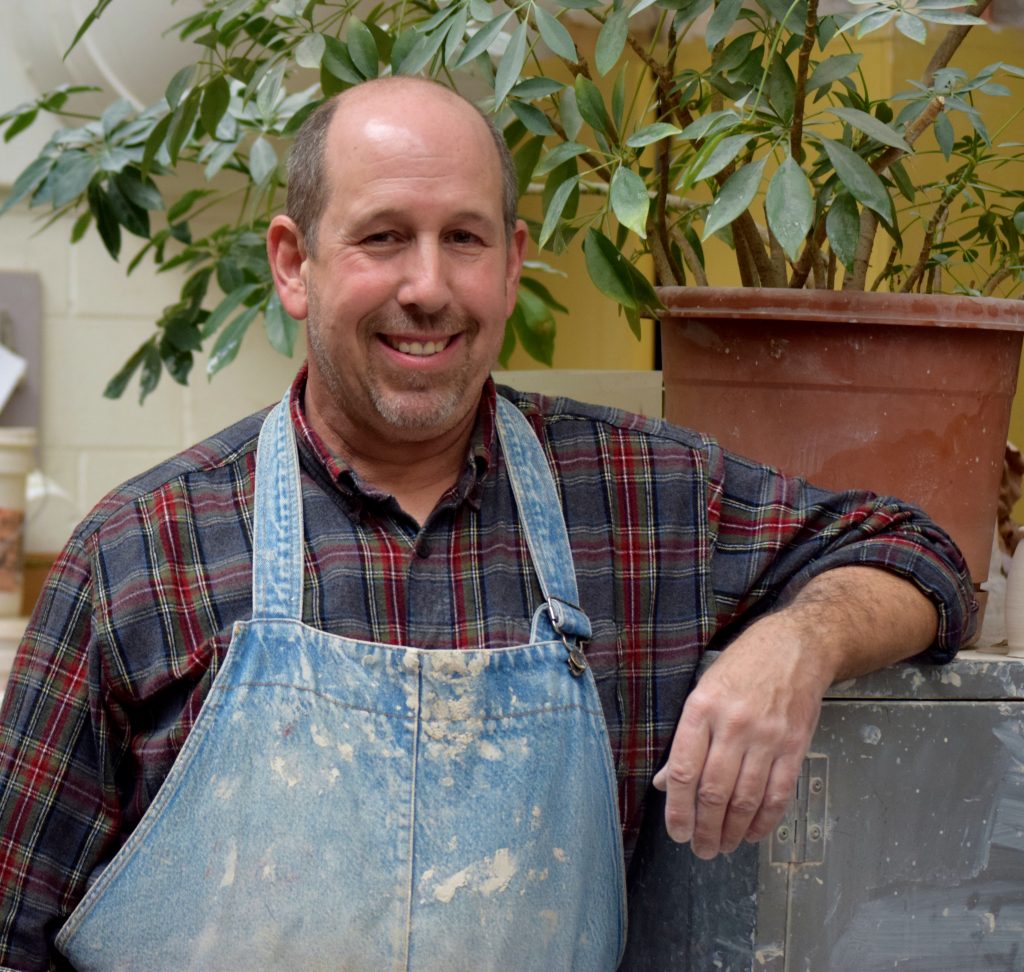
Michael Benedict was born and raised in Ann Arbor, and attended Allen elementary, Tappan Junior High, and Huron High Schools. He studied chemistry and visual art at the University of Michigan, where he earned a BFA in 1984. After working in the ceramics manufacturing industry, he finished his graduate work at Mills College in Oakland, California and started his teaching career at Oakland High School.
In 1989, Benedict moved back to Michigan and took a teaching position in Jackson teaching chemistry, earth science and humanities. He joined the teaching staff at Pioneer High School in 2003, where he has been teaching ever since.
Benedict lives on a farm in Manchester with his wife of 25 years, Kathryn. They have two daughters, Maya and Alia, who are students at Macalester College in St. Paul, Minnesota.
In his free time, Benedict keeps bees and produces as much of his own food as possible.
Profile and photos by Jo Mathis/AAPS District News
Why did you become a teacher? Teaching has turned out to be my third career, after working in business and the ceramic manufacturing industry. I decided to turn to a career in teaching for several reasons. First, I wanted to give back to the wonderful institution of public education. I received an excellent public school education, taught by passionate and influential teachers. I would not be where I am not if it were not for several incredible teachers that changed my life. I want to be that kind of teacher for my current students.
When do you love the job most? I love teaching most when the student, who was previously ready to give up, instead beams with pride and confidence upon presenting their project in a class-wide critique. When students learn resilience—that’s when I love teaching.
What makes you well-suited for the job? I’m really passionate about the subjects I teach: Humanities Art History, and Ceramics & Sculpture. I love introducing my students to the world of art and creativity. And then there’s the performance aspect of teaching that I find appealing—like show business. The job requires a mix of creativity, problem-solving, mentoring & caring and a bit of showing off. It’s the perfect job for me, and I’m lucky to have found it.
Why art? Art allows us to explore any facet of human existence. With art, we can explore the personal, the historical, the political, the technical, the spiritual. Anything is a legitimate area of exploration in the world of art. I feel it’s the most important subject we can teach.
Can you teach someone to be creative if it doesn’t come naturally? Creativity can most definitely be taught. And the most important thing an art teacher can do it to give students the tools they need to foster their own creativity. The biggest misconception out there is that creativity is strictly an innate gift.
When a guest visits your home, is it obvious an artist lives there? I think it’s pretty obvious even before they get to the front door. 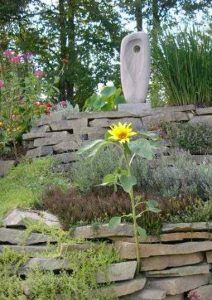
Why is that? I have a lot of sculptures in the gardens surrounding my home. I also keep a garden of “failed pots” that emerge from the ground, mixed with vegetables and perennials. (See photos at left and below.)
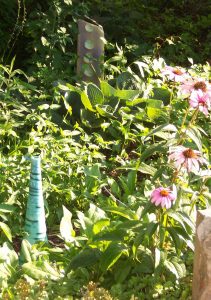
What do you now know about teaching that you didn’t know right out of college? I didn’t know that one of the most rewarding parts of teaching would be the strong and powerful collegial connections that are made over one’s career.
How has the profession changed since you started teaching? How have students changed? I think there is a lot more emphasis on documenting specific student achievement, which, while it can be taken to excess, is probably a good thing overall. Students, in my opinion, are much kinder than they were in the 1980s when I started teaching.
If you weren’t a teacher, what would you be doing? I’d be either a farmer, or a jazz lounge singer.
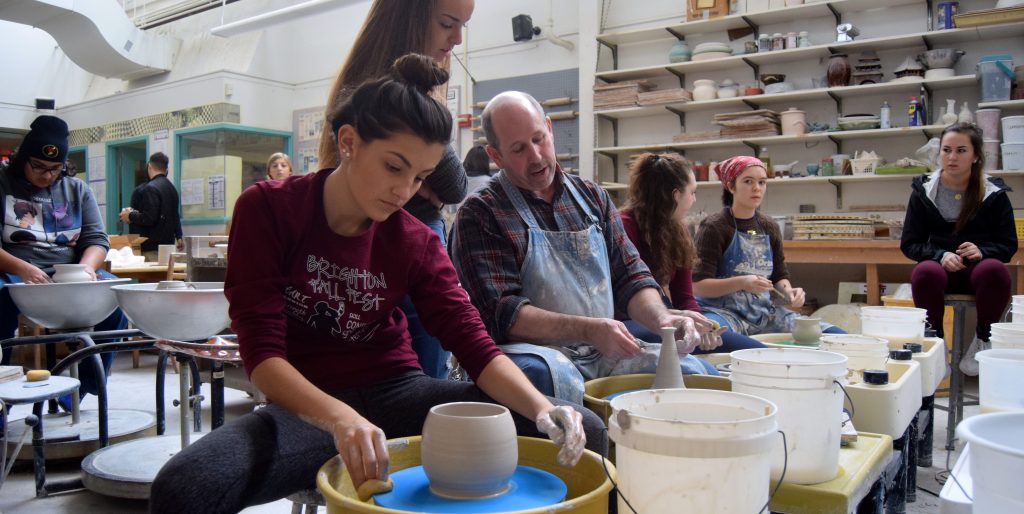
What are your top 3 tips for new teachers?
- Set up a habit of reflecting on your teaching at the end of each day. What worked? What didn’t? What can be done better?
- Make strong connections with faculty members you admire. Make interdisciplinary connections happen. Seek them out and nurture them.
- Find something that rejuvenates you . . . . hiking, yoga, cooking . . . anything that gives you energy. And then do it every day. Teaching, while being a wonderful and fulfilling career, is also wildly draining. Balance teaching with what reenergizes you.
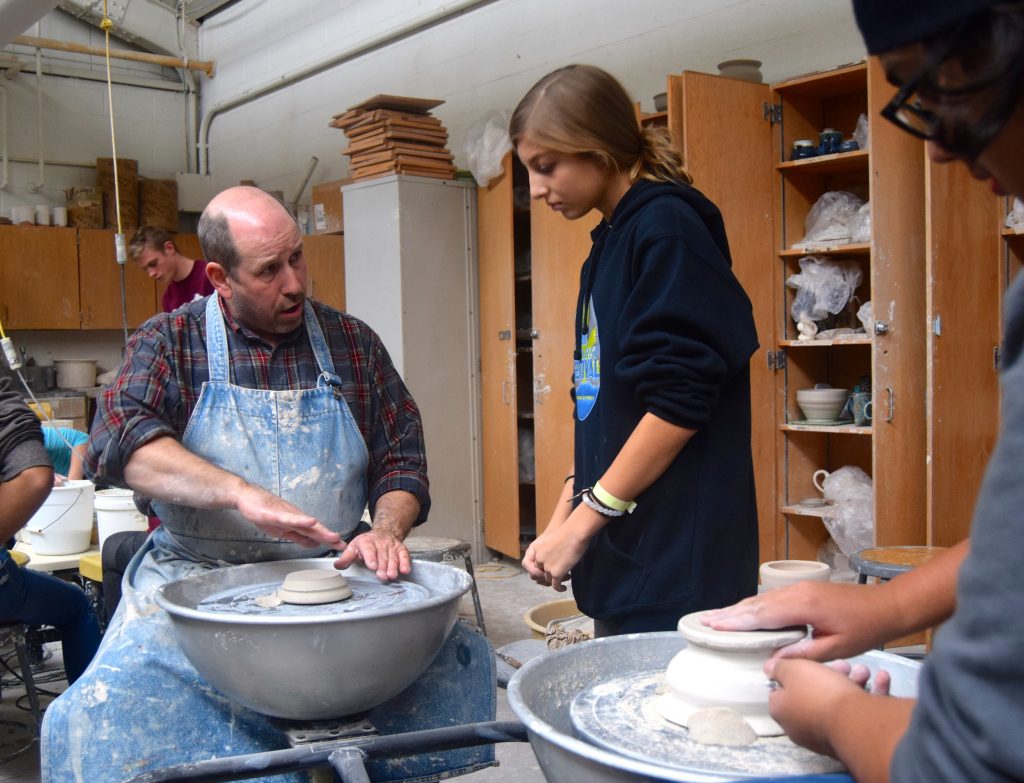
What was the most rewarding experience of the past school year? I was visited by a difficult student who had graduated the previous year. The student stopped by my room to not only apologize for their behavior, but to also to tell me that he planned to continue his art education at WCC. He expressed his gratitude, which just blew me away. Sometimes we have no idea that we actually may be getting through to challenging students. The results of our work are not always immediately evident.
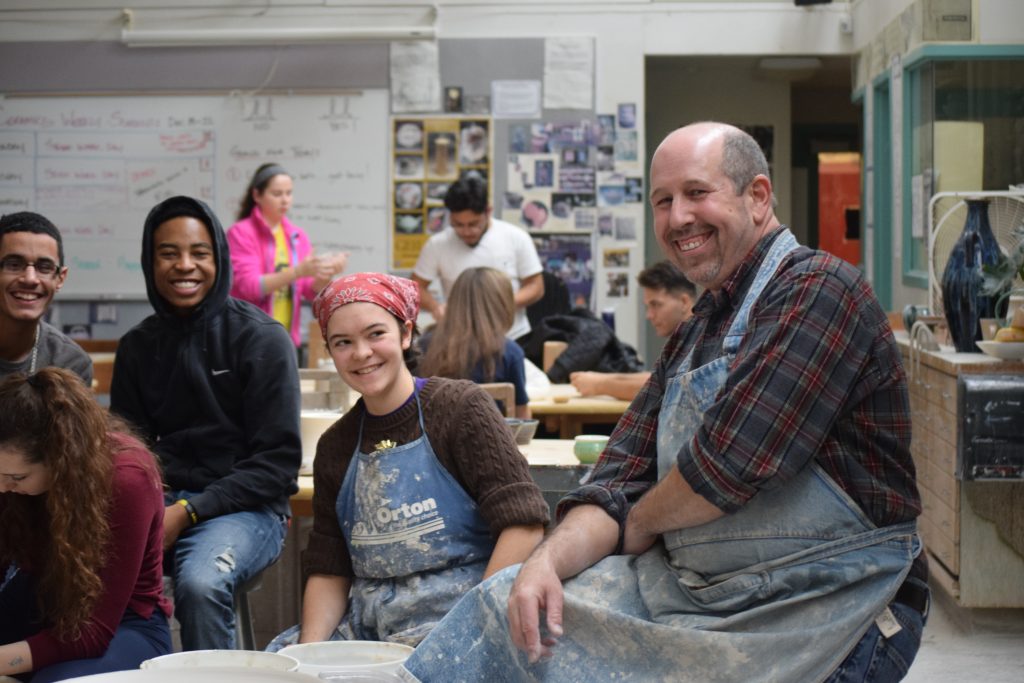
What would your students be surprised to learn about you? I think my students would be surprised to know that I own and run a bee farm that produces honey and bee-related products to the greater SE Michigan area. www.back40bees.com
What doesn’t the general public understand about a day in the life of an AAPS teacher? I don’t think that there is an awareness that teachers are always working. We are thinking about our students and how to reach them almost 24-7. It’s very personal work—not something that you can punch out from each day.

Be the first to comment